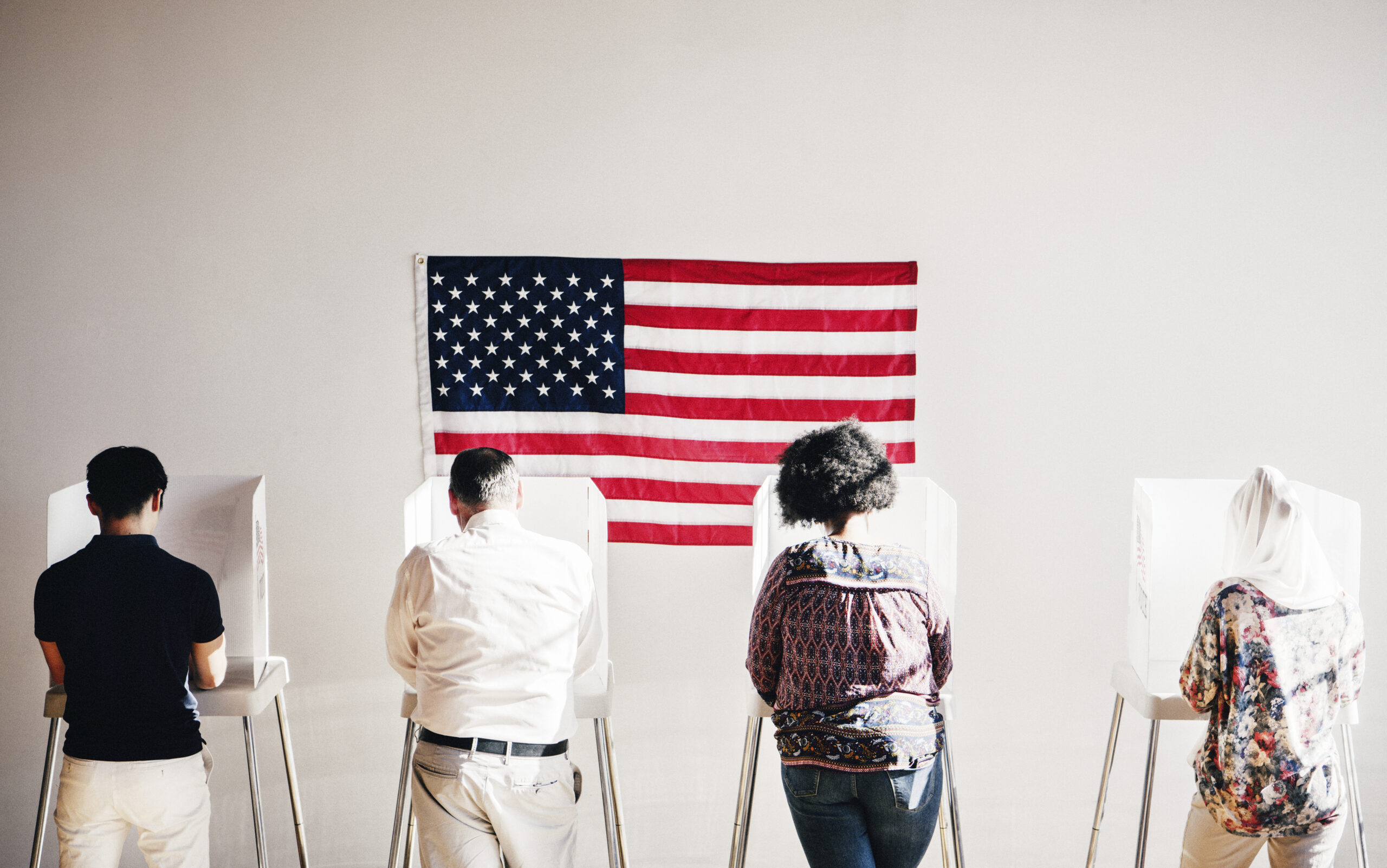
Policing Our Votes
By hannah fried
october 15, 2024
Our country has a long and dark history of voter suppression, central to which has been the egregious use of law enforcement to intimidate voters of color and activists at the polls – a method deeply intertwined with the broader over-policing of Black communities and other communities of color. Time and time again, placing police directly in the path of Black and Brown voters has, unsurprisingly, decreased their turnout.
In recent months, election policing has become increasingly brazen and widespread in an effort to add more fuel to the “Big Lie” of election denialism. This is not “policing” in an abstract sense but the establishment of state-supported, dedicated units of “election police.” These law enforcement groups are designed to intimidate and suppress access to the ballot box, sowing doubt in our elections at a scale that we have never seen before.
In the aftermath of the 2020 election, officials in at least six states created election integrity units – election-focused police forces. Faced with overwhelming evidence that widespread voter fraud isn’t a problem in this country – these units have offered little to no return on their states’ investment. What they have done is use public resources to spread fear and disinformation while targeting voters of color.
Election police units typically have the power to arrest voters they suspect of committing fraud. In Florida, they have the power to conduct investigations and open independent inquiries without any explicit restraints on the scope, in some cases leaving voters vulnerable to investigations based only on perceived “suspicious” behavior. Our research into these units in Florida and Ohio found that they were summarily created with no public input, transparency, or engagement with civil rights organizations. The baseless claims of voter fraud at the root of this issue are also driving states to harshen criminal penalties for voters and election workers. And it has inspired law enforcement, separate from these units, to take on election security – far outside of the bounds of their roles as public safety officers.
We’re seeing the impact on the ground right now:
- A Wisconsin sheriff used baseless claims of election fraud to pressure three election officials into removing his county’s drop boxes, fueling Big Lie conspiracy theories and suppressing voter access for his constituents.
- In Ohio, a sheriff advocated for recording the addresses of voters with Kamala Harris yard signs “so that immigrants can be sent to live with them if the Democrat wins the presidency.”
Going door to door on a witch hunt to intimidate voters is not what Americans want from our law enforcement – it does nothing to keep our communities, or our elections, safe. Families across the country are worried about real things – public safety, the cost of childcare, the vitriol in our public domain. That’s what public officials should be addressing instead of breeding this culture of fear. In fact, 83% of Americans think voting should be as easy as possible – a call to action for policymakers to make real progress on improving our democracy.
The election is less than 30 days away. Rather than misusing their power to instill fear in voters, state and local officials should leverage their authority to foster confidence in our electoral system, educate voters about how to register, ensure they know their rights at the polls, and ensure every vote counts.